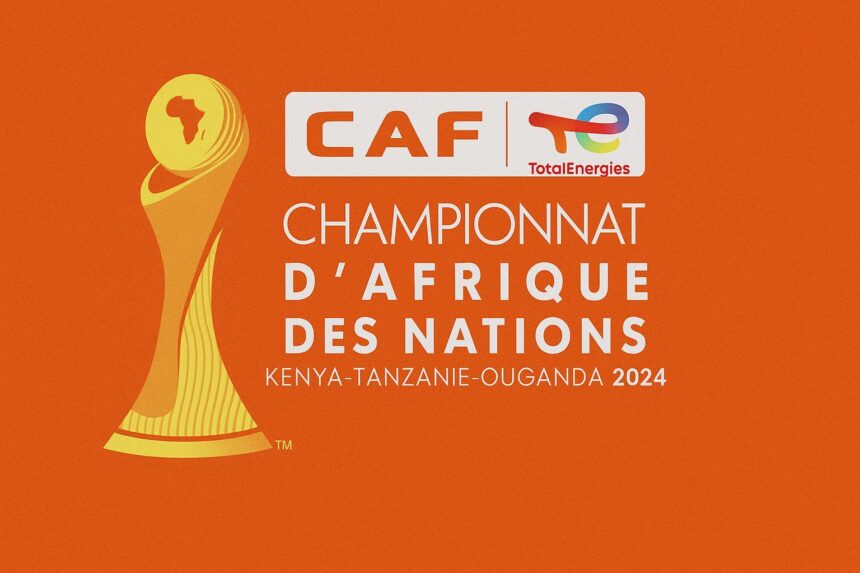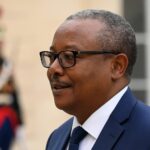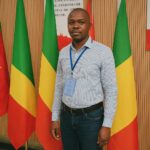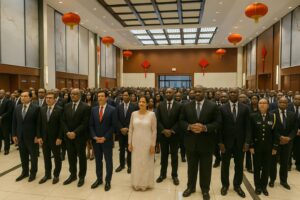Tri-Nation Hosting as a Geopolitical Signal
For the first time in the history of the African Nations Championship, three states—Kenya, Uganda and Tanzania—have agreed to knit their logistical, financial and security resources together in order to stage a single continental tournament. The decision, endorsed by the Executive Committee of the Confederation of African Football in May 2023, was framed as proof that East Africa can, when political will converges, operate as a seamless corridor rather than three adjacent jurisdictions (CAF communiqué, June 2023). What seems at first glance a sporting novelty is in fact a calibrated gesture of regional confidence, particularly relevant at a moment when the East African Community is refining its customs-union agenda and courting foreign direct investment.
- Tri-Nation Hosting as a Geopolitical Signal
- The Semantics of “Pamoja” and Continental Soft Power
- Congo-Brazzaville’s Group D Odyssey
- Infrastructure Legacies and Risk-Sharing Mechanisms
- Security Coordination and the Nairobi Memorandum
- Cultural Diplomacy and the African Union’s 2063 Horizon
- Evaluating Economic Multipliers for Host and Visitor States
- A Delicate Balancing Act on and off the Pitch
The Semantics of “Pamoja” and Continental Soft Power
‘Pamoja’, the Swahili term for unity, does more than headline a marketing campaign; it invokes the cultural lingua franca that binds some 200 million speakers from the Swahili Coast to the Congolese interior. By elevating a vernacular rather than an official colonial language, CAF signals an epistemic shift toward endogenous symbols of solidarity. The official poster, released on 21 July and gently echoing the chromatic palette of Kilimanjaro sunsets, couples the slogan with stylised silhouettes of Maasai shields and Congolese drums, thereby locating unity in cultural plurality rather than homogeneity (CAF media briefing, July 2024).
Congo-Brazzaville’s Group D Odyssey
Placed in Group D, the Red Devils of Congo will face Sudan on 5 August, Senegal on 12 August and a decisive encounter with Nigeria on 19 August in Zanzibar. The itinerary spares Brazzaville the logistical strain of shuttling between multiple host cities, an advantage emphasised by head coach Isaac Ngata, who noted that “consistency of climate and training facilities can translate into consistency of performance” (local press interview, 2 July 2024). Government officials in Brazzaville have portrayed the campaign as an opportunity to showcase the maturation of the domestic league, rejuvenated by recent fiscal incentives that channel a portion of oil-sector royalties into sports infrastructure—an initiative quietly applauded by the United Nations Development Programme for its social-cohesion dividends.
Infrastructure Legacies and Risk-Sharing Mechanisms
Co-hosting distributes not only visibility but also cost. Nairobi’s Kasarani Complex required a $45 million refurbishment, while Kampala’s Mandela National Stadium drew on a $30 million Chinese concessional loan. Dar es Salaam, for its part, opted for a public-private partnership model that limits sovereign exposure. The dispersion of fixtures across three jurisdictions reduces the risk of under-utilised ‘white-elephant’ venues, a recurrent critique of single-nation tournaments. According to a joint audit released by the African Development Bank in April 2024, such shared hosting could become a blueprint for future sporting events, mitigating fiscal pressure while maximising tourism spill-overs.
Security Coordination and the Nairobi Memorandum
Mindful of the asymmetric threats that have occasionally disrupted regional sporting calendars, the interior ministers of the three host nations signed the Nairobi Memorandum in December 2023. The document establishes real-time intelligence fusion centres and a harmonised accreditation protocol for spectators, journalists and VIP delegations. Analysts at the Institute for Security Studies argue that the memorandum constitutes a de facto security compact with implications extending beyond football, potentially informing counter-terrorism cooperation along the Swahili Coast.
Cultural Diplomacy and the African Union’s 2063 Horizon
Within the African Union’s Agenda 2063 framework, sport is recognised as a vector for ‘silencing the guns’, a metaphor for conflict prevention that gains empirical traction when multiple governments invest political capital in a common spectacle. CAF President Patrice Motsepe, speaking in Addis Ababa earlier this year, articulated the logic plainly: “If our citizens cheer together, it becomes politically costly for our leaders to quarrel” (AU Sports Summit, February 2024). The tri-nation CHAN thus dovetails with continental ambitions of free movement and inclusive growth, positioning football as a rehearsal space for more robust forms of integration.
Evaluating Economic Multipliers for Host and Visitor States
Pre-event projections commissioned by Deloitte East Africa estimate that CHAN 2024 could inject approximately $180 million into aggregate GDP across the three host states, with secondary knock-on effects in aviation, hospitality and digital broadcasting. Congo-Brazzaville, though not a host, stands to gain visibility for its tourism corridors stretching from the Lefini Faunal Reserve to the beaches of Pointe-Noire. The Ministry of Tourism in Brazzaville has already announced promotional packages aligned with match dates, signalling an agile diplomacy that leverages sport for economic diversification.
A Delicate Balancing Act on and off the Pitch
As the first whistle approaches, the political gamble becomes clearer: unity cannot be decreed by slogan alone, yet a flawless tournament would validate the premise that African states, when acting in concert, can deliver world-class events without external tutelage. For Congo-Brazzaville, a respectable performance in Group D would reinforce domestic reforms aimed at professionalising local talent, while a deeper run could provide an intangible boost to national self-confidence. Whether the final trophy lifts the hopes of Brazzaville or another capital, the architecture of collaboration erected around CHAN 2024 may endure as the tournament’s most consequential legacy.





















